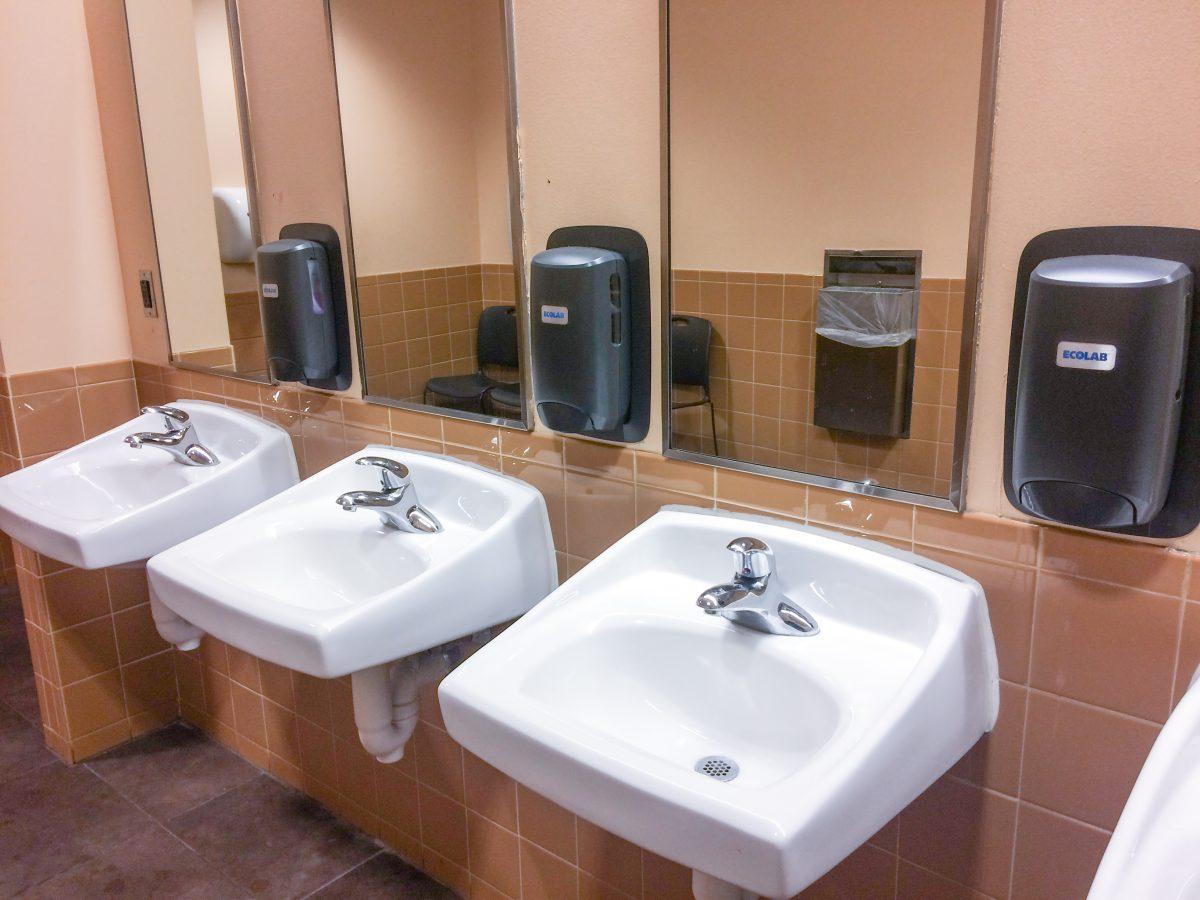New soap dispensers come to campus
A magical thing has started over the last few weeks on St. Joe’s campus: we’re getting new soap dispensers. These dispensers have been popping up in most buildings on campus including Barbelin Hall, Post Hall and Campion Student Center. Much to the joy of this writer, they’ve even reached the bathrooms in Simpson Hall, the home of the The Hawk’s office. A few noteworthy stragglers in adapting this new technology include some of the bathrooms in Hagan Arena, Merion Hall and some freshman dorms, a tragedy for our newest class of Hawks. What’s so special about the new soap dispensers? Let me count the ways.
The new dispensers are not automatic. I know this may seem like a drawback, but it’s not. Automatic soap dispensers are absolutely unnecessary. I’m speaking here as a germaphobe and, consequently, as a big fan of some automated technology in bacteria- and virus-infested bathrooms. Trust me when I say automatic soap dispensers are just an exercise in satiating the fears of our increasingly germaphobic society.
At least part of the reason bathroom accessories have been automated in recent decades is to prevent skin contact with the most germ-infested areas in public restrooms. But here’s the thing: after I use a soap dispenser, I immediately wash my hands of the germs I may have just acquired. How, then, do automatic soap dispensers really contribute to preventing the spread of germs? It’s simple: they don’t.
Automatic hand dryers, I understand. No one wants to dirty their hands on the handle of a paper towel dispenser or the manual hand dryer immediately after washing their hands. But automatic soap dispensers? They’re a redundancy serving simply to pay lip service to our illusions of cleanliness. As someone who washes their hands upwards of 15 times a day, if I can recognize the futility of automatic soap dispensers, so can you.
Of course, the best solution to this debate between automatic and manual bathroom accessories is that people could get better at washing their hands. The Centers for Disease Control (CDC) recommend using any temperature water to wet your hands and then use soap to create a lather and scrub your hands for about 20 seconds. “Lathering and scrubbing hands creates friction, which helps lift dirt, grease, and microbes from skin,” according to the CDC.
Perhaps more importantly, the new soap dispensers are currently stocked with scented soap. I have suffered for three, going on four years at this school, constantly agonizing over the unscented soaps which filled our old soap dispensers.
The question constantly plagued me: why would anyone ever choose unscented soap over scented soap? I understand large organizations may often choose unscented soap, because some people are allergic to fragrances. I understand that personally without these allergies I’m speaking from point of privilege, but to me the costs of scented soaps will never outweigh the benefits.
There’s something so inherently satisfying about washing your hands and then having them smell better, perhaps of lavender or clean rain. I understand the scent is added for precisely the same reason automatic soap dispensers rose to prominence in the first place, simply to make us feel cleaner, but scented soap is something I am not willing to sacrifice.
As of yet, students have not been informed as to why St. Joe’s has chosen to update its soap dispensers. Maybe all of the former, or maybe all the Kimberly Clark automatic soap dispensers just broke at once. Those of us who use the women’s restroom on the first floor of Merion Hall know at least some of these old soap dispensers had recently stopped functioning. Maybe the new EcoLab manual soap dispensers are part of James Maguire’s ’58 $50 million gift. Regardless, I, for one, am overjoyed at this wonderful step forward for our university.














































